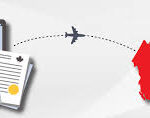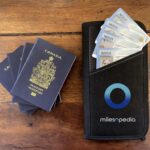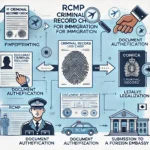The Ultimate Study Guide for the Canadian Citizenship Test

Your Path to Becoming a Canadian: The Ultimate Citizenship Test Study Guide
For many permanent residents, the final step in their journey to fully integrate into Canadian society is becoming a citizen. A crucial part of this process is passing the Canadian citizenship test. While it might seem daunting, with the right preparation and resources, you can approach the test with confidence. This ultimate study guide will help you understand what to expect, what to study, and how to maximize your chances of success.
 What Happens to Your Foreign Debt When You Immigrate to Canada?
What Happens to Your Foreign Debt When You Immigrate to Canada?What is the Canadian Citizenship Test?
The Canadian citizenship test is a written exam that assesses your knowledge of Canada, including its history, geography, economy, government, laws, and the rights and responsibilities of citizenship. It is usually a multiple-choice test, and you need to answer a certain percentage of questions correctly to pass.
 How to Renew Your Foreign Passport from Within Canada
How to Renew Your Foreign Passport from Within CanadaWho Needs to Take the Test?
Most applicants for Canadian citizenship between the ages of 18 and 54 are required to take the test.
 How to Get an RCMP Criminal Record Check for Employment or Immigration
How to Get an RCMP Criminal Record Check for Employment or ImmigrationKey Topics to Study
The test is based on the official study guide, "Discover Canada: The Rights and Responsibilities of Citizenship." This document is your primary resource. Key areas covered include:
 Preparing for Your Immigration Interview at a Canadian Embassy
Preparing for Your Immigration Interview at a Canadian Embassy1. History of Canada
- Indigenous Peoples (First Nations, Inuit, Métis).
- European Settlement (French and British colonization).
- Confederation and the creation of Canada.
- Key historical events and figures (e.g., World Wars, women's suffrage, Terry Fox).
2. Geography of Canada
- Provinces and territories and their capitals.
- Major cities, mountain ranges, and bodies of water.
- Key geographical features and regions.
3. Economy of Canada
- Major industries and natural resources.
- Canada's trading partners.
- The role of the Canadian dollar.
4. Government and Political System
- Parliamentary Democracy: How the federal, provincial, and municipal governments work.
- Monarchy: The role of the Queen/King and the Governor General.
- Elections: How elections work, voting rights, and responsibilities.
- Political Parties: Major federal political parties.
5. Laws and Justice System
- The Canadian legal system, including the police, courts, and correctional services.
- The Canadian Charter of Rights and Freedoms.
6. Rights and Responsibilities of Citizenship
- Rights: Mobility rights, Aboriginal rights, equality rights, official languages.
- Responsibilities: Obeying the law, paying taxes, serving on a jury, voting, helping others in the community.
Effective Study Methods
- Read "Discover Canada": Read the official study guide multiple times. It's available online for free.
- Take Practice Tests: Numerous free online practice tests simulate the actual exam. This is crucial for familiarizing yourself with the question format and identifying areas where you need more study.
- Join a Study Group: Studying with others can help reinforce learning and clarify concepts.
- Watch Videos: Many YouTube channels offer summaries and explanations of the "Discover Canada" guide.
- Flashcards: Create flashcards for key dates, names, and concepts.
What to Expect on Test Day
- Location: The test is usually taken at an IRCC office.
- Identification: Bring your Permanent Resident Card, passport, and any other immigration documents.
- The Test: It's typically a multiple-choice test with 20 questions. You need to answer at least 15 correctly to pass.
- Interview: After the test, you will have a short interview with a citizenship officer. They will verify your documents, confirm your identity, and assess your language skills and knowledge of Canada.
Conclusion: Your Final Step to Canadian Citizenship
The Canadian citizenship test is a significant milestone on your journey to becoming a full member of the Canadian family. By thoroughly studying the "Discover Canada" guide, utilizing practice tests, and understanding the test day process, you can approach this final hurdle with confidence. Passing the test is not just about memorizing facts; it's about embracing the values and responsibilities that come with being a Canadian citizen. Good luck on your path to citizenship!
